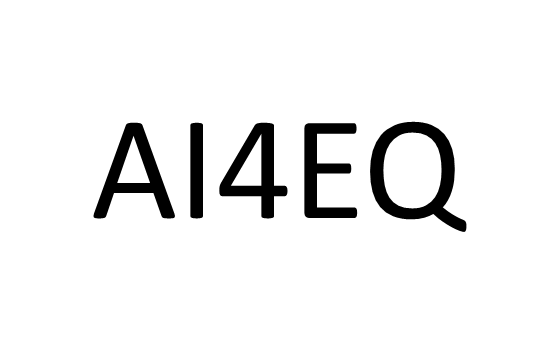Home
Advancing Towards the SDGS
Artificial Intelligence for a Fair, Just and Equitable World
Held in conjunction with ECAI 2020
August 29 – September 8, 2020 – Santiago de Compostela, Spain
The United Nations (UN) Agenda for Sustainable Development, which was adopted by the UN General Assembly in 2015, commits all member states to make concerted efforts towards building an inclusive, sustainable, prosperous and resilient future for people and planet, and to reaching the universally-applicable goals by 2030. Artificial Intelligence (AI) has the potential to contribute to solving some of the world’s most pressing problems – such as climate change, lack of basic services, poverty, exploitation and violations of human rights – and thereby to the achievement of the UN Sustainable Development Goals (SDGs), bringing positive socio-economic outcomes in both High Income Countries (HIC) and Low and Income Countries (LMIC).
Since 2017, the UN has held the annual AI for Good Global Summit aimed to accelerate progress towards the UN SDGs by connecting AI innovators with “problem owners”, and to ensure trusted, safe and inclusive development of AI technologies and equitable access to their benefits.
Also noteworthy is the UN Global Pulse Initiative intended to foster discovery, development and scaled adoption of big data innovation for sustainable development and humanitarian action. It is relevant that experience with projects such as those of Global Pulse has highlighted important ethical concerns, for example, with both the collection and use of data during humanitarian emergencies.
In the same vein, the recently released UN report of the Special rapporteur on extreme poverty and human rights warns of the «risk of stumbling zombie-like into a digital welfare dystopia» where «Big Tech has been a driver of growing inequality and has facilitated the creation of a vast digital underclass». The report provides many well documented examples in different countries on how dehumanized intelligent technologies are creating barriers to accessing a range of social rights for those lacking internet access and digital skills.
Initiatives such as the IEEE Global Initiative on Ethics of Autonomous/Intelligent Systems, the European Commission’s High-Level Expert group on AI work on «Ethics guidelines for trustworthy AI», or the Montreal declaration for a responsible development of AI 2018 also highlight the increasing challenges posed by AI in the ethical, moral, legal, humanitarian and sociopolitical domains.
A wide view of ethics focuses on potentialities, not only on risk mitigation, and from such a view arises the ethical imperative to harness AI technologies to the benefit of humanity in order to improve quality-of-life for all rather than contribute to perpetuating systemic injustices. To this end, more R&D in the potential of AI to contribute to the SDGs is urgently needed; a practical research that goes beyond cataloging risks and potentialities.
With this workshop we seek to encourage the academic research community to get involved in inter and multidisciplinary research, where this community includes application-driven AI researchers together with applied ethicists and experts on technological legislation and technological innovation for development.
Firstly, there is a need to study the current panorama of AI applications in sectors crucial to the UN SDGs, to share the lessons learned in applying them, in order to identify strengths and weaknesses, and to document and disseminate the development and deployment of the most significant innovative applications. Attention should be drawn to the idiosyncrasy of each LMIC (cultural, climatic, environmental, organizational, infrastructural, socio-economic, etc.) and the particular impact AI-based technological innovation can have in each context. Secondly, progress in standards, research methodologies and development methodologies and tools that guide the development of ethical AI is also essential. Ethical AI should be respectful of fundamental human rights (dignity, freedoms, equality, solidarity, justice) and of the particular values of the culture where it is implemented, and should take into account the idiosyncrasy of each context. There is a need to bring order to the current landscape of overabundance of ethical codes, guidelines and frameworks that often suffer from deficiencies such as: lack of scientific rigor, subjectiveness, incoherence, superficiality and redundance, and may do little more than generate confusion.
Although manuals of good business practices are necessary, in the academic field there is a need for independent and scientifically rigorous research, with an empirical dimension which, so far, is mostly lacking. Of course, methodologies and tools cannot replace legislation and manuals of ethics and good practices, but should support their implementation. Academic research, private sector self-regulation and legislation are necessary and complementary actions. It is important that research and development methodologies and tools comply with universal ethical principles so that they are applied equally, since legislation may be lax or unclear in certain contexts, this being more likely to occur in LMICs and when the most vulnerable are concerned.
Regarding the risks, perhaps the most feared is job losses. Base erosion and profit shifting and the concentration of industries threaten to undermine countries’ tax bases. Other threats from the digital revolution of AI include the theft of digital identities, invasion of privacy by governments or businesses, discrimination based on personal data, monopoly positions due to control of big data, challenges to deliberative decision-making processes, cyber warfare, hacking of election data and the manipulation of social media.

